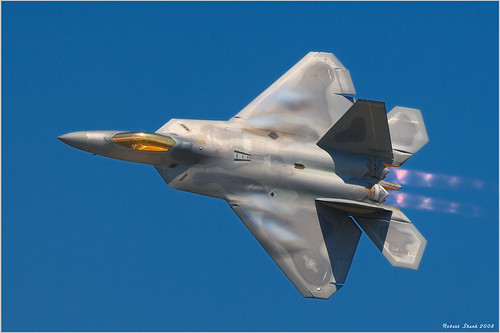Wasting money on planes the Pentagon doesn’t want

More fighter jets. President Obama hasn’t asked for them, Defense Secretary Gates doesn’t want them, but our representatives in Congress are planning to waste money on them anyway. We can stop it. Click here to urge your representative to cut funding for the F-22.
In an effort to trim the substantial fat in the military budget, the Obama administration decided to cut back on its order of new F-22s. These fighter planes were designed to fight planes from the Soviet Union, and are now obsolete. In spite of all this, the House Armed Services Committee added $369 million as a down payment on twelve F-22s, with a long-term cost of $2 billion.
Where did they find this money in the midst of a budget crunch? They took it from a fund to clean up hazardous nuclear waste. There’s no excuse for this irresponsible behavior. The House could vote on an amendment to put the money back in environmental cleanup as soon as tomorrow.
This isn’t about making Americans safer – it’s all about the money. The weapons lobby is incredibly powerful, and they spend millions to influence Congress. They put suppliers and plants in 44 different states, making it a favorite for lawmakers trying to bring money back to their districts. While members of Congress are saying they can’t pay for things like health care that would actually improve the quality of life for millions of people, they have no problem throwing money at a program the President, Secretary of Defense and American people don’t want. Now is the time to show that the American people want smart policies that meet real needs. Because thousands of you spoke out earlier this year, we cut $1 billion in the stimulus bill for the nuclear weapons complex. Let’s work together for another victory.



[…] This is a problem for the current situation in Afghanistan as well as a long-term issue that the US government must address. It is time for our government to recognize that civilian tools like development, aid and diplomacy are integral to our national security, and make serious investments in building our civilian capacity rather than throwing money away on wasteful military projects. […]
[…] […]